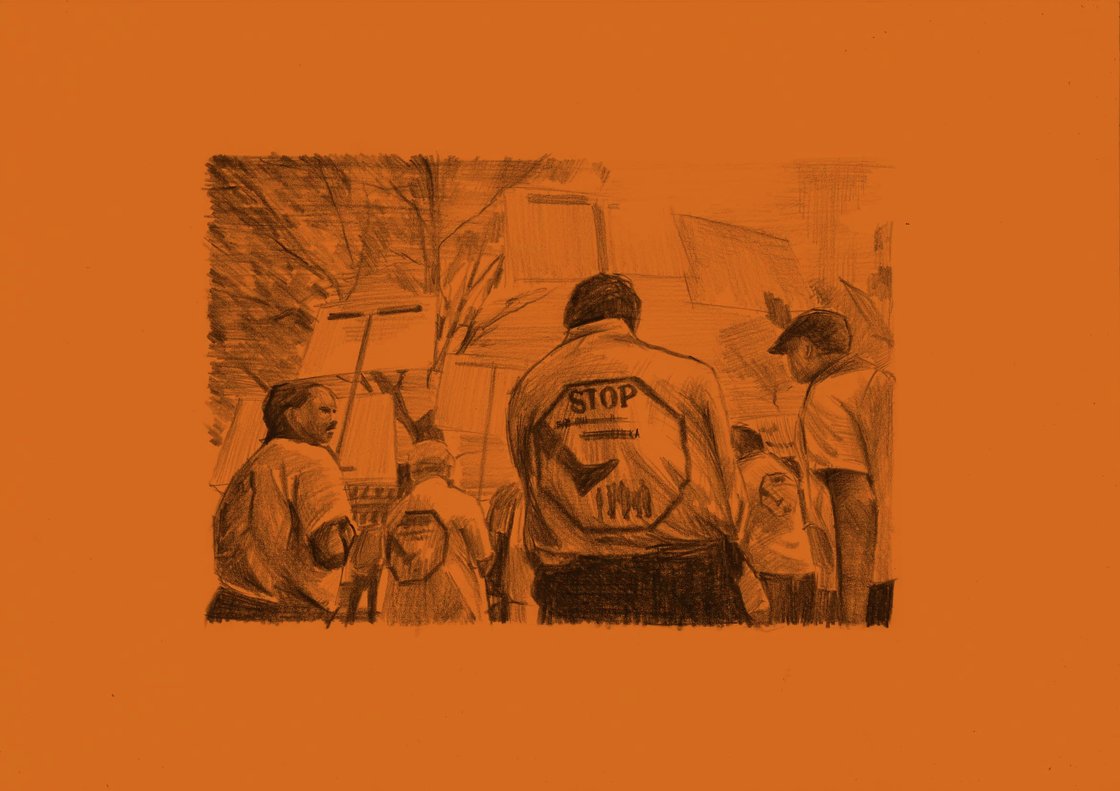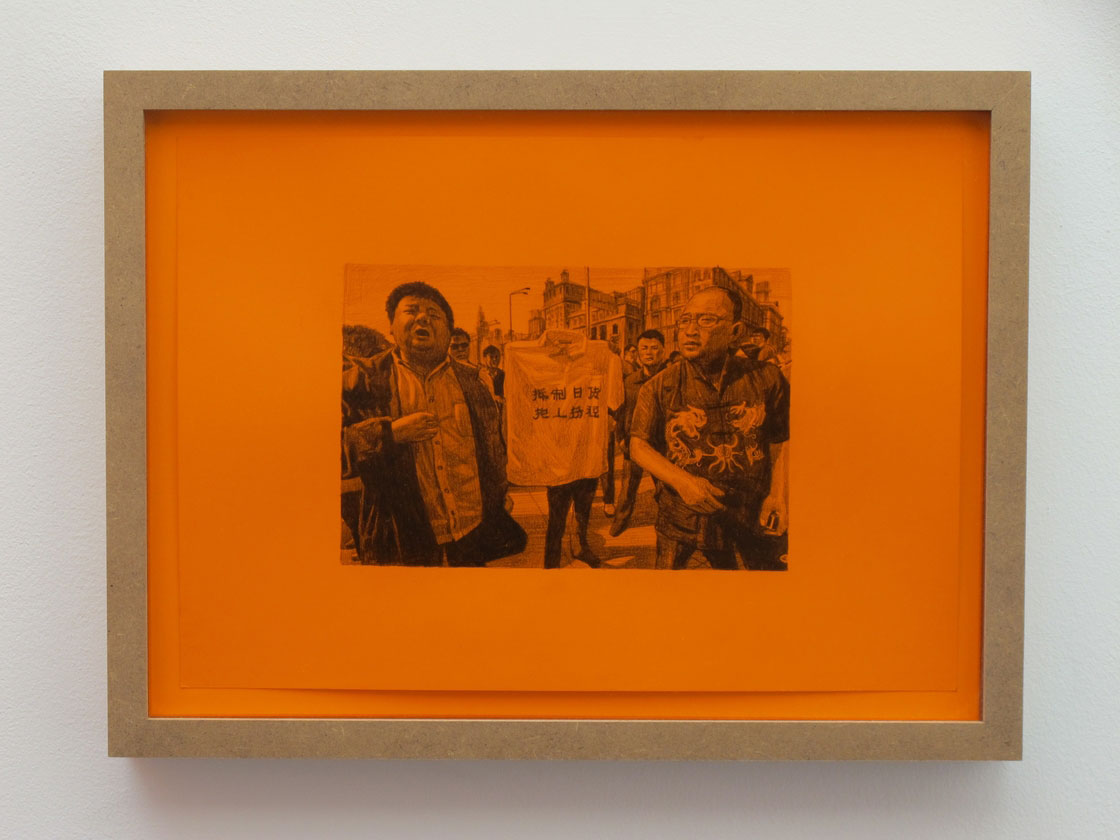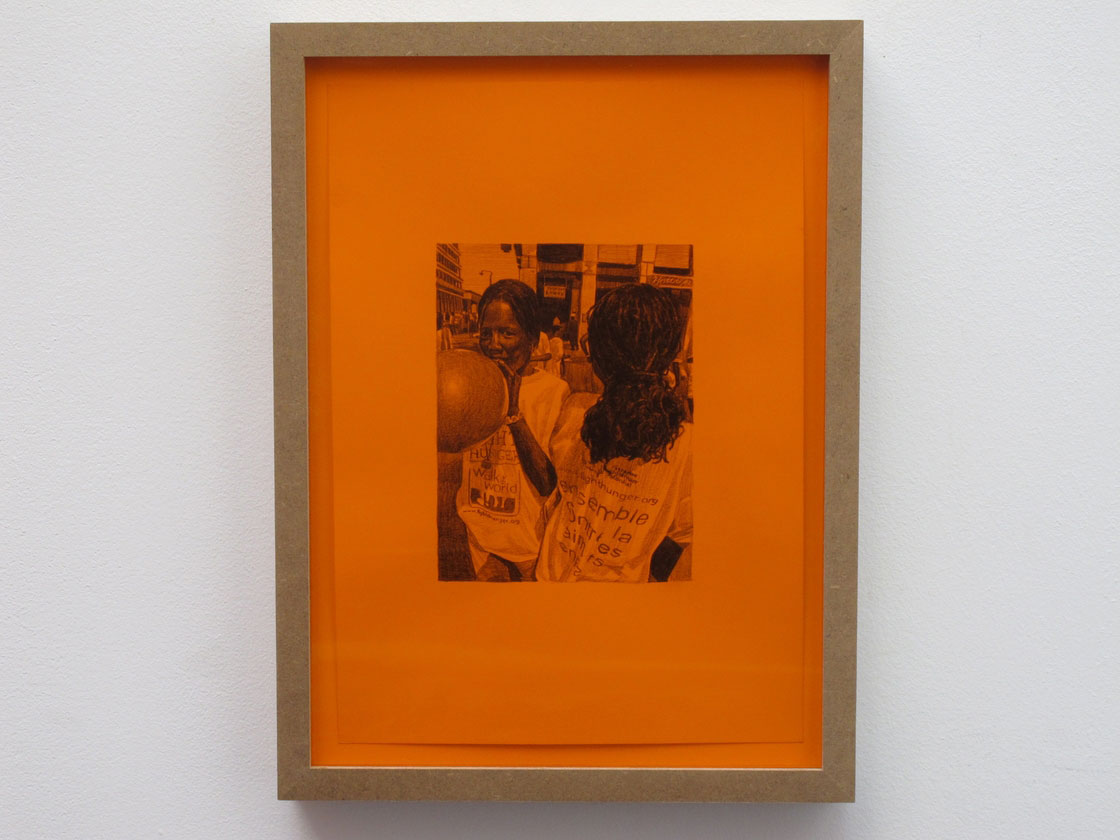ART CITIES: Paris-Rirkrit Tiravanija
 The work of Rirkrit Tiravanija has not stopped questioning the format of artworks and the exhibition system. A mix of performance, sculpture, installation, and more, with Tiravanija, the artistic space transforms into a place of social interaction, often dotted with meeting points, encounters, and exchanges. Frequently immaterial, his work invents new connections in a world based on reciprocity, conviviality, and hospitality.
The work of Rirkrit Tiravanija has not stopped questioning the format of artworks and the exhibition system. A mix of performance, sculpture, installation, and more, with Tiravanija, the artistic space transforms into a place of social interaction, often dotted with meeting points, encounters, and exchanges. Frequently immaterial, his work invents new connections in a world based on reciprocity, conviviality, and hospitality.
By Dimitris Lempesis
Photo: Galerie Chantal Crousel Archive
A selection of drawings from the series “t-shirt demonstration drawings” (2010) by Rirkrit Tiravanija are exhibited at Galerie Chantal Crousel in Paris. Particularly visible in this series, the topics of community, and social and political action, are at core of Rirkrit Tiravanija’s artistic practice. First exhibited at Galerie Chantal Crousel in 2010, these drawings, commissioned by Tiravanija, were executed by Thai students and young artists. They are graphite translations of press photographs of demonstrations against oppressive power structures. Following the “demonstration drawings” series initiated in 2006, the “t-shirt demonstration drawings” result from the appropriation of photographs of demonstrators “wearing” their political message, through the medium of the printed T-shirt. Becoming the standard-bearer of social and political claims, this piece of garment turns into a space for debate and an expression of the freedom to think and conceive common hopes. The drawings are an ongoing project by the artist where young Thai artists are commissioned to create drawings of images ripped from the press. Part of the proceeds from the drawings benefits “The Land Foundation” in the village of Sanpatong, Thailand. The Land Foundation is a sustainable community founded in part by Tiravanija. His work finds a particular echo in a period where the political debate is no longer an exchange of ideas but of slogans and where political action seems to give way to disillusionment. By gathering individuals around a common project, the artist highlights the possibility of a collective utopia. The meticulous exercise of the drawn reproduction defuses the violence of these conflictual situations. Displayed under orange glass, the works are seen through the prism of a color symbolizing pacification and wisdom in Thai culture.
Rirkrit Tiravanija was born in Buenos Aires in 1961 and was raised in Thailand, Ethiopia, and Canada. He studied at the Ontario College of Art in Toronto, Banff Center School of Fine Arts, School of the Art Institute of Chicago and Whitney Independent Studies Program in New York. Since the 1990s, Tiravanija has aligned his artistic production with an ethic of social engagement, often inviting viewers to inhabit and activate his work. In one of his best-known series, begun with “pad thai” (1990) at the Paula Allen Gallery in New York, Tiravanija rejected traditional art objects altogether and instead cooked and served food for exhibition visitors. For his second solo exhibition in New York, held at 303 Gallery in 1992, Tiravanija filled the white rooms with stacks of cultural cast-offs, rendering the space into what seemed like a storage facility, demoting the primacy of the revered art object. Over the following years, the artist ignored the prescribed division between art and life, constructing communal environments that offer a playful alternative venue for quotidian activities. In 1997 Tiravanija began an engagement with the monoliths of modernist architecture when he installed in the Museum of Modern Art’s sculpture garden “Untitled: 1997 (Glass House)” a child-size version of Philip Johnson’s famed Glass House (1949). Similarly, “untitled 2002 (he promised)” is an arena of activities ranging from DJ sessions to film screenings within a chrome and steel structure inspired by Rudolf M. Schindler’s iconic Kings Road House (1922) in West Hollywood. For “A retrospective (tomorrow is another fine day)” (2004), viewers are guided through a seemingly objectless modernist space in the Museum Boijmans Van Beuningen in Rotterdam, inhabited only by minimal architectural interventions, tour guides, and theatrical readings by Tiravanija’s friend, artist Philippe Parreno. In 2005 Parreno and Tiravanija collaboratively constructed five puppets caricaturizing themselves and three other artists (Pierre Huyghe, Liam Gillick, and Hans Ulrich Obrist), which were then employed for the film “untitled 2005 (stories are propaganda)”. His engagement with propaganda can also be seen in his ongoing series of commissioned drawings derived from newspaper images and in “untitled 2006 (fear eats the soul (November 1-8, 2004)”, in which Tiravanija painted the phrase “fear eats the soul” over the front page of The New York Times. For his ongoing project “The Land” (begun in 1998), a collaborative artistic, architectural, and environmental recovery project in Sanpatong, Thailand, residents and artists are welcomed to use a plot of land as a laboratory for development‚ cultivating rice, building sustainable houses, or channeling solar power.
Photo: Rirkrit Tiravanija, from the series: Untitled (t-shirt demonstration drawing), 2010, © Rirkrit Tiravanija, Courtesy the artist and Galerie Chantal Crousel
Info: Galerie Chantal Crousel, 5 rue de Saintonge, Paris, France, Duration: 19/2-9/4/2022, Days & Hours: Tue-Sat 11:00-19:00, www.crousel.com


